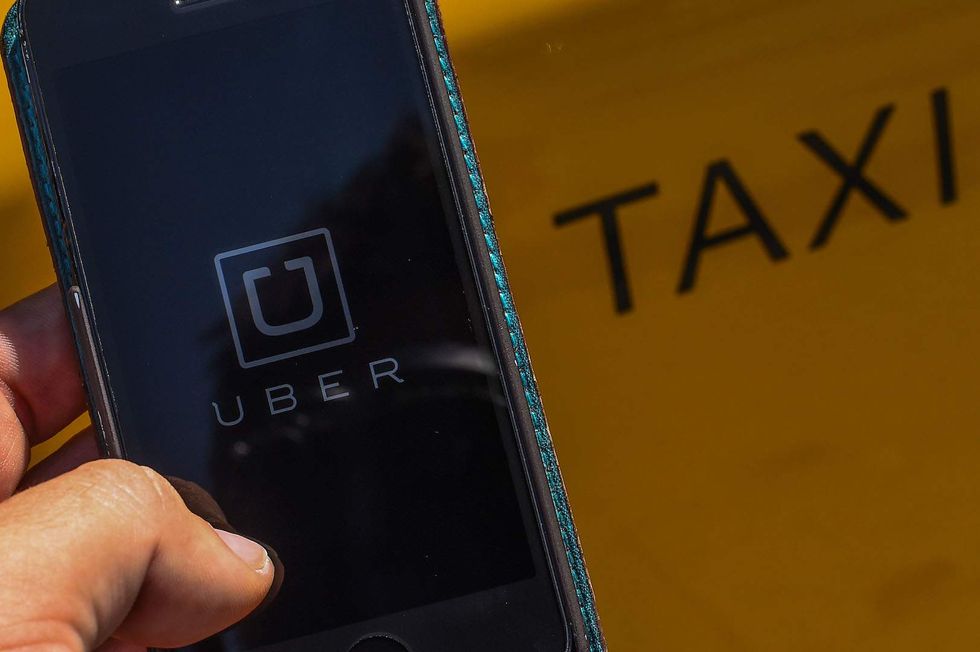
Massachusetts' new background checks have taken over 8,000 Uber and Lyft drivers off the street,
thanks to a new state law.(Illustration by David Ramos/Getty Images)

Over 8,000 current Uber and Lyft drivers are now banned from driving in the state of Massachusetts, thanks to a more stringent background check put in place by Massachusetts lawmakers.
Both companies agreed in November to let the state run its own background checks, and in exchange, the state allowed them to service passengers to and from Logan Airport in Boston.
Lyft and Uber's standard policy includes a background check with a look-back of seven years, but that check wasn't quite draconian enough for Massachusetts lawmakers, who required the background check to include the driver's lifetime. They also included drivers who had any kind of "continuance without a finding" on their record, which is a plea deal that allows defendants to avoid a conviction on their record.
More than 70,000 drivers applied for the checks, which began in January, and the results announced Wednesday indicated that over 10 percent of applicants did not pass the screening.
More than 1,500 drivers were rejected because of a violent crime charge. Another catch: 51 sex offenders who were, of course, rejected by the state. Those convicted with a felony, various traffic offenses, and sex abuse were also denied. Criminals were rejected, so the regulations put in place were successful, one could argue.
But according to the Boston Globe, the most common reasons for rejection involved driver's license status: either a previously suspended license or not having driven long enough to qualify.
While supporters of the law say they are happy with the results and believe the law is keeping unsafe drivers off the streets, critics argue the stringent regulations are preventing law-abiding citizens from making a living.
Greater Boston Legal Services attorney Pauline Quirion, who mostly works with citizens with criminal backgrounds attempting to re-enter the workforce, told the Globe her office has already heard from many drivers who were disqualified for minor offenses that happened years ago.
"What about somebody who abused drugs, but now they’ve been sober for 20 years? Or a domestic violence victim who has a conviction for throwing a can at her abuser?" Quirion said. "Would anyone be worried about her driving an Uber?"
Massachusetts resident Erik Scott was told in January that he could not continue driving for Uber because of a failed background check. The offense? A street fight in the 1990s, a case from his early 20s in which he was not even convicted. But the continuance without a finding result was enough for state lawmakers to prevent him from earning a living.
"I agree Massachusetts should have stringent background checks," Scott said. "But if the case is dismissed and there’s no conviction, then a driver should be able to earn a living, regardless."
Scott tried to appeal the state's finding, but Massachusetts automatically rejects appeals from drivers with 18 of the disqualifying events on their record, including minor infractions such as a suspended license. His appeal was dismissed before it could be heard.
Uber voiced its displeasure with the results in a statement, saying the screening process was unfair.
"The new screening includes an unfair and unjust indefinite look-back period that has caused thousands of people in Massachusetts to lose access to economic opportunities,” the company said. "We have a chance to repair the current system in the rules process so that people who deserve to work are not denied the opportunity."
Public hearings on the rule are scheduled for May since the companies technically have until 2018 to comply with the law.
Massachusetts Governor Charlie Baker said in a statement that the state had "set a national standard for driver safety," and that he looks forward "to future partnerships with Uber, Lyft, and others to grow this innovative industry and support more jobs and economic opportunities for all."
As for the 8,000 drivers rejected? For now, they'll have to find their economic opportunities somewhere else.